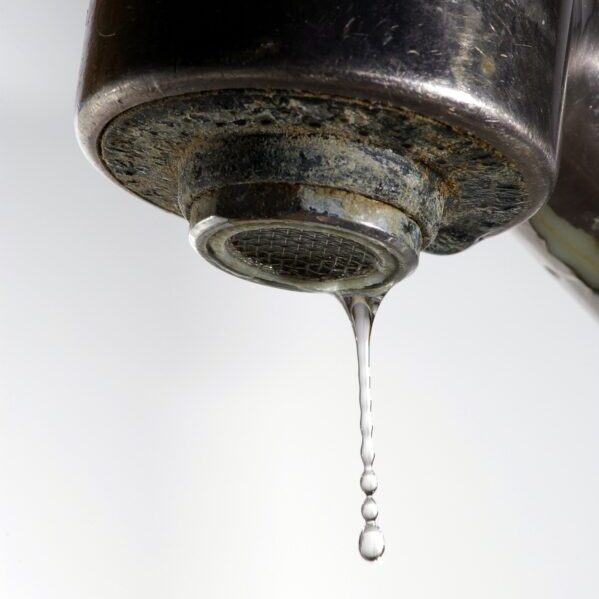What Are Water Softeners & How Do They Work?
Have you noticed the white gunk that’s built up on your faucets? What about the spots on dishware and silverware after you get them out of the dishwasher? What about problems with the washing machine, water heater, or coffeemaker? These issues are common with hard water, and it’s why so many homeowners are installing water softeners in their homes. This post tells you what hard water is, how a water softener can help, and how these systems work.
 What is Hard Water?
What is Hard Water?
It seems funny to call water hard, but what we mean by that is that the water has a high mineral content, typically magnesium and calcium. These minerals get picked up by water as it flows over rocks and through soil, dissolving into the water supply.
While hard water is generally safe to drink, it can wreak havoc in the house. Hard water is notorious for causing scale buildup on faucets and in pipes and appliances. It reduces how effective soap and detergent are and leaves unsightly stains in sinks, tubs, toilets, and showers.
What is a Water Softener & How Do They Work?
Water softeners remove minerals from the water supply, making it soft. Most systems are installed where the main water line enters the house, ensuring that all the water is treated. Here’s how they work.
Mineral Tank: Hard water enters the system’s mineral tank, which is filled with resin beads. These beads are coated with sodium or potassium ions.
Ion Exchange: When the hard water passes over the resin beads in the mineral tank, the calcium and magnesium ions are attracted to the beads, and the ions are swapped — calcium and magnesium in exchange for sodium or potassium.
Soft Water: The water exiting the tank is softened, meaning it doesn’t have high levels of calcium and magnesium.
Regeneration Cycle: Over time, the resin beads get saturated with magnesium and calcium, and the system goes into a regeneration cycle, flushing the beads with a brine solution to wash away the minerals and recharge the beads for the next use.
Why Get a Water Softener?
Installing a water softener might seem like an added expense, but many homeowners wonder how they ever lived without one. A water softener can make home life much more convenient and less stressful. Here’s what it can do for you.
Prevents Scale Buildup: Hard water causes scale to leave deposits on and in plumbing fixtures, reducing water flow and leading to difficult-to-remove clogs. Water softeners prevent this buildup, keeping your plumbing system flowing freely.
Extends Appliance Lifespan: Besides building up on fixtures and in pipes, the hard water minerals can damage water-based appliances like dishwashers, coffeemakers, and washing machines. This buildup can cause clogs, leading to inefficiency, performance issues, and premature failure.
 Makes Soap and Detergent More Effective: Another problem many people don’t associate with hard water is how it interferes with soap and detergent. These minerals prevent the soap from forming a lather, making clothes come out stiff, causing spots on dishware, and leaving skin dry and itchy. These might seem like minor annoyances, but once you switch to soft water, you’ll wonder how you ever lived without it.
Makes Soap and Detergent More Effective: Another problem many people don’t associate with hard water is how it interferes with soap and detergent. These minerals prevent the soap from forming a lather, making clothes come out stiff, causing spots on dishware, and leaving skin dry and itchy. These might seem like minor annoyances, but once you switch to soft water, you’ll wonder how you ever lived without it.
Reduces Cleaning Time: As mentioned, hard water leaves nasty stains and soap scum on dishes, shower doors, and in tubs, toilets, and sinks. You can remove these spots and stains with a good cleaner and a little elbow grease, but wouldn’t it be nice not to have to do that?
Saves Money: Preventing scale buildup can help your plumbing system and major appliances last longer and require fewer repairs, saving money.
If you’re sick of dealing with the effects of hard water, call Tri-Florida Water Treatment today. We sell, install, and service water treatment systems like water softeners. We’re a family-owned company that’s proudly served Polk County residents since 1984 and we look forward to earning your business.
